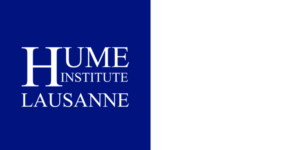Future Proofing Economies: Commodities, Value Chains & Up-Skilling
Indonesia is a state rich in an array of highly marketable commodities that are certain to play an ever-larger role in the global economy. While the state has made considerable progress in leveraging these assets, researching and informing policy decisions on such issues is an ongoing concern. Indeed, the global, technological, and broader market developments that shape these industries are inherently dynamic. Consequently, Indonesia must strive, like all states, to shape emerging trends or be nimble enough to pivot to meet evolving demands. This requires a dedicated work stream evaluating the evolving role of commodities in increasingly high-technology industries and specific reflections on how the state and its industries can move up the value chain. Such concerns are often inherently linked to upskilling workforces at all levels to meet the needs of shifting industry dynamics.
Alternative & Islamic Finance
Islamic Finance in Indonesia plays an important role in the state and regional financial ecosystem. Indeed, Islamic financial tools, approaches, and products are increasingly becoming mainstream in Indonesia. However, considering the makeup of the Indonesian state and the reality that it is the world’s largest Muslim majority nation, this area of the financial system remains ripe for considerable, paradigm-shifting growth. Indeed, harnessing and directing the potential scale of the Islamic finance market in the state can further power the state’s rise as a true economic giant in Southeast Aisa and further afield. Equally, whether linked to Islamic finance or not, Indonesia as a young and dynamic state, needs to shape itself as a location that develops, engages with, and exports cutting-edge alternative financial tools (fintech, cryptocurrencies, decentralized finance approaches) that can contribute to the state’s prosperity.
Public Health & Education
One of the largest challenges facing Indonesian policymakers and indeed Indonesia as a state is the underdeveloped nature of Indonesia’s health care provision and allied sectors such as the life sciences industry. International metrics clearly show that Indonesia suffers acutely from the impact of non-communicable and from communicable diseases, with some estimates suggesting the cost being up to 33% of annual GDP or some $200bn per year. Even if a significant chunk of this is unavoidable, there remains huge scope for improvement. Research and policy engagement on this subject is required to improve this critical aspect of human security. In this sphere in particular, the role of education is critical if health outcomes are to be improved.
Islam, Indonesia & Identity
Indonesia is widely known as the world’s largest Muslim state and one of the world’s largest democracies. Clearly, the Muslim aspect of the state is important. Yet Indonesia is much more than this as well. It is a profoundly layered state comprising around 1300 ethnic groups speaking over 60 languages. Considering this astonishing array of complexity and diversity, which clearly could have been the seed of widespread ructions, the state has functioned in a highly cohesive fashion, ultimately providing for a real sense of overall stability and growth. There is much work to be undertaken herein to investigate how the Indonesian state has managed and prospered with such diversity that has, elsewhere in the world, led to profound problems. Equally, none of this is to take Indonesia’s overarching stability for granted. Challenges clearly exist that are worthy of exploration.
Geopolitics & Security
Indonesia’s strategic positioning at the core of Southeast Asia, effectively linking continents and overseeing some of the world’s critical shipping lanes, gives the state a vital role in regional and international geopolitics. However, Indonesia’s place, context, and influence in this regard are arguably misunderstood and underestimated, especially by an Atlanticist audience. This programme, therefore, undertakes research and engagement to delineate how Indonesia’s positioning matters today and to map out scenarios considering its future orientation and influence in its region and beyond.
